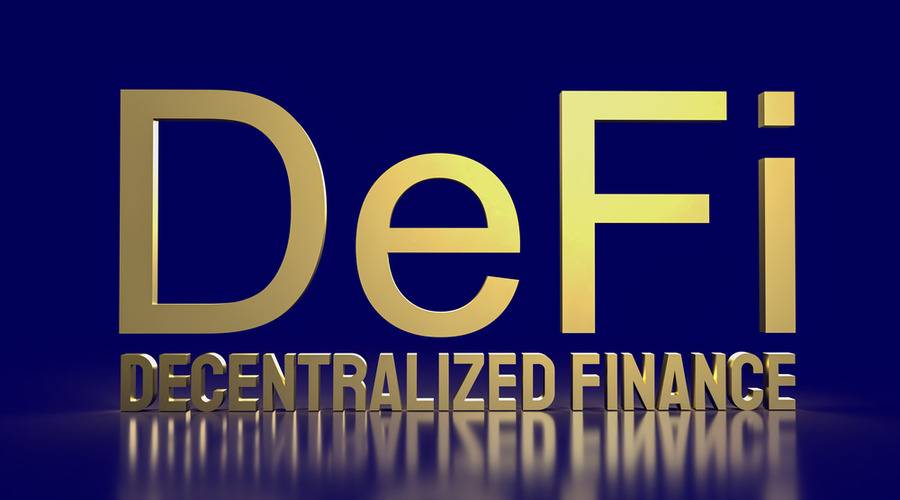Types of Insurance Coverage in DeFi

Types of Insurance Coverage in DeFi
In the fast-paced world of decentralized finance (DeFi), where smart contracts and blockchain technology revolutionize traditional financial systems, insurance coverage plays a vital role in mitigating risks and safeguarding digital assets. As the DeFi ecosystem expands, various types of insurance options have emerged to address the unique challenges and vulnerabilities faced participants. This article explores the different types of insurance coverage available in DeFi, providing insights into their purpose, benefits, and potential impact on the security of your investments.
Understanding the Importance of Insurance in DeFi
In the decentralized finance space, insurance acts as a protective shield against potential vulnerabilities, hacks, or glitches that may occur within the ecosystem. It provides users with a sense of security and confidence, knowing that their investments are safeguarded against unforeseen events. With the absence of intermediaries, insurance in DeFi becomes crucial for ensuring trust, attracting more participants, and driving the growth of the ecosystem.
Smart Contract Insurance: Protecting Against Vulnerabilities
Smart contracts, the cornerstone of DeFi protocols, are computer programs that automatically execute predefined actions when certain conditions are met. However, these contracts can still be vulnerable to bugs, coding errors, or malicious attacks. Smart contract insurance aims to cover losses resulting from such vulnerabilities, providing compensation for affected parties and reducing the financial impact of unforeseen events.
Smart contract insurance plays a crucial role in protecting participants in the decentralized finance (DeFi) ecosystem against vulnerabilities. Smart contracts, while innovative and efficient, are not immune to risks. They can be susceptible to coding errors, bugs, or even malicious attacks. Smart contract insurance aims to mitigate the financial impact of such vulnerabilities providing coverage for losses incurred as a result of these incidents.
With smart contract insurance, participants can have an added layer of protection and reassurance in their interactions with DeFi protocols. In the event of a vulnerability or exploit, affected parties can seek compensation through their insurance coverage, reducing the potential financial losses that may arise. This insurance coverage incentivizes users to engage more confidently in DeFi activities, knowing that they have a safety net to rely on.
Insurance providers carefully assess the risks associated with smart contracts, evaluating the vulnerabilities and potential impact on participants. They work towards creating tailored insurance products that address these risks and provide comprehensive coverage. By offering smart contract insurance, the DeFi ecosystem becomes more resilient and secure, fostering trust and encouraging further adoption of decentralized financial solutions.
Asset Insurance: Safeguarding Digital Investments
Asset insurance focuses on protecting the value of digital assets held within DeFi protocols. It provides coverage against various risks, such as theft, hacks, or loss of private keys. By insuring their assets, users can mitigate potential losses and have a safety net in case of any unfortunate incidents, promoting trust and confidence in the DeFi ecosystem.
Coverage for Liquidity Providers: Minimizing Impermanent Loss
Liquidity providers play a crucial role in DeFi supplying funds to liquidity pools, enabling efficient trading and lending. However, they face a unique risk known as impermanent loss, which occurs when the value of the deposited assets changes relative to the liquidity pool. Insurance coverage designed specifically for liquidity providers aims to mitigate this risk, ensuring that they are protected against potential losses resulting from impermanent loss.
Governance Insurance: Mitigating Voting Manipulation Risks
Decentralized governance allows token holders to participate in decision-making processes within DeFi protocols. However, it also exposes them to risks such as voting manipulation or collusion. Governance insurance offers protection against such risks, ensuring that the voting process remains fair and transparent. By having governance insurance, participants can actively engage in protocol governance without worrying about potential manipulations.

Market Volatility Insurance: Guarding Against Price Fluctuations
The volatile nature of cryptocurrency markets poses a significant challenge for DeFi participants. Market volatility insurance provides coverage against sudden price fluctuations, protecting users from potential losses resulting from extreme market conditions. With this insurance, participants can have peace of mind and focus on their investment strategies without being overly concerned about the unpredictable nature of the market.
User Account Protection: Security Measures for Individuals
Individual users are also vulnerable to various risks in the DeFi space. User account protection insurance aims to enhance the security of individual accounts covering losses resulting from unauthorized access, phishing attacks, or identity theft. By providing this insurance, DeFi platforms and service providers ensure that their users’ accounts are protected, fostering a secure and trustworthy environment.
Risk Assessment and Coverage Limitations
While insurance coverage in DeFi offers significant benefits, it is essential to understand the risk assessment process and coverage limitations. Insurance providers evaluate the risks associated with DeFi protocols and determine the extent of coverage they can offer. Coverage limitations may include exclusions for certain events, coverage caps, or deductibles. Users must carefully review the terms and conditions of the insurance policies to make informed decisions about their coverage needs.
- Risk Evaluation: Insurance providers conduct thorough risk assessments to evaluate the potential risks associated with DeFi protocols and determine the coverage options they can offer.
- Technical Vulnerabilities: Risk assessments identify technical vulnerabilities in smart contracts, such as coding errors or bugs, which can lead to financial losses. Coverage limitations may exclude certain vulnerabilities from insurance protection.
- Market Volatility: Insurance providers consider market volatility as a significant risk factor in DeFi. Coverage limitations may include exclusions or limitations on coverage for losses resulting from extreme market conditions or price fluctuations.
- Liquidity Risks: Risk assessments account for liquidity risks in DeFi protocols, particularly for liquidity providers. Coverage limitations may address impermanent loss and provide specific conditions for coverage related to liquidity provision.
- Coverage Caps: Insurance policies often have coverage caps, which limit the maximum amount of compensation that can be provided in the event of a covered loss. These caps are determined based on risk assessments and the financial capacity of the insurance provider.
- Deductibles: Deductibles are common in insurance policies and represent the portion of the loss that the policyholder must bear before insurance coverage kicks in. Coverage limitations may specify deductible amounts for different types of risks.
- Exclusions: Insurance policies may have exclusions for certain events or risks. These exclusions are determined through risk assessments and aim to manage the scope of coverage provided the insurance provider.
- Policy Terms and Conditions: Insurance coverage in DeFi is subject to specific terms and conditions outlined in the policy. These terms may include coverage limitations, exclusions, waiting periods, or other provisions that policyholders must be aware of.
- Regulatory Considerations: Risk assessments also take into account regulatory requirements and compliance obligations that may affect the coverage provided insurance providers in the DeFi space.
- Evolving Nature: Risk assessments and coverage limitations are dynamic processes that evolve with the changing landscape of DeFi. Insurance providers continuously adapt their assessments to address emerging risks and improve coverage options.
It is essential for participants to carefully review the risk assessments and coverage limitations of insurance policies in DeFi to have a clear understanding of the extent of coverage and any potential limitations or exclusions that may apply.
The Role of Insurance Providers in DeFi
Insurance providers play a crucial role in the DeFi ecosystem bridging the gap between traditional insurance practices and the decentralized nature of blockchain-based finance. They assess risks, develop customized insurance products, and provide coverage to participants. As the DeFi industry continues to grow, insurance providers will play an increasingly significant role in ensuring the security and sustainability of the ecosystem.
The Future of Insurance in the DeFi Landscape
The future of insurance in DeFi holds immense potential for innovation and growth. As the industry matures, we can expect the emergence of new insurance models, improved risk assessment techniques, and more comprehensive coverage options. With increased adoption and integration of insurance within DeFi protocols, the ecosystem will become more resilient and attractive to traditional investors seeking exposure to decentralized finance.
Conclusion
In the dynamic world of decentralized finance, insurance coverage is a crucial component for protecting digital assets and mitigating risks. By understanding the different types of insurance available in DeFi, participants can make informed decisions to safeguard their investments and actively contribute to the growth and security of the ecosystem. As the DeFi landscape evolves, the collaboration between insurance providers and DeFi protocols will shape the future of finance, making it more inclusive, secure, and resilient.
FAQs
1. Why is insurance important in decentralized finance? Insurance provides protection against risks and vulnerabilities in the DeFi ecosystem, ensuring the security of investments and fostering trust among participants.
2. What is smart contract insurance? Smart contract insurance covers losses resulting from vulnerabilities, bugs, or coding errors in smart contracts, providing compensation to affected parties.
3. How does asset insurance work in DeFi? Asset insurance safeguards the value of digital assets held within DeFi protocols, offering coverage against risks such as theft, hacks, or loss of private keys.
4. What is impermanent loss and how does liquidity provider insurance mitigate it? Impermanent loss refers to potential losses faced liquidity providers due to changes in asset value relative to the liquidity pool. Liquidity provider insurance protects against such losses.
5. What is governance insurance? Governance insurance protects token holders from risks such as voting manipulation or collusion, ensuring fair and transparent decision-making processes within DeFi protocols.
I’ve been involved with cryptocurrency for three years. I have been a vocal advocate for the people and an active part of the community. I am well-known for my book “Crypto Revolution: An Insider’s Guide to the Future of Money” and blog “The Crypto Chronicles.” In addition, I frequently contribute to CoinDesk, one of the top news websites for cryptocurrencies. I write as well as invest actively in a number of bitcoin initiatives.
